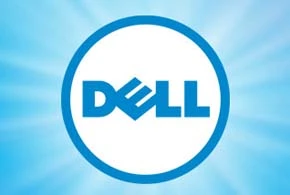
The vendor rolls out new offerings optimized for life sciences and manufacturing, and talks about its HPC-as-a-service efforts.
Dell is rolling out new systems and demonstrating hybrid cloud capabilities in its continuing effort to bring high-performance computing capabilities to mainstream enterprises.Dell for several years has been promoting the idea of making high-performance computing (HPC) accessible to enterprise and midmarket customers to give them an edge over competitors as business environments rapidly evolve.That has included pushing standards through groups like OpenHPC (Dell is a founding member), creating an HPC community through which members can communicate with Dell and colleagues and rolling out solutions with partners—such as SAP and Cloudera—that make it easier for mainstream businesses to embrace HPC. Dell's PowerEdge servers also form the foundation of the Stampede supercomputer at the Texas Advanced Computer Center (TACC), which is number 12 on the latest Top500 list of the world's fastest systems.TACC recently was awarded $30 million by the National Science Foundation to build Stampede 2, a Dell-based supercomputer that at 18 petaflops of performance will be twice as fast as the current system. At the ISC High Performance 2016 supercomputing show this week in Frankfurt, Germany, Dell officials are building out that effort by adding new systems to its portfolio that are aimed at specific segments—life sciences, manufacturing and research—as well as kicking off an early-access program to give some customers a look at an upcoming server due later this year that will be powered by Intel's new many-core Xeon Phi 7200 "Knights Landing" family of chips, which also were released at the supercomputing event. In addition, Dell officials at the show are demonstrating a proof-of-concept with a customer highlighting capabilities of what they are calling HPC-as-a-service, which on-premises and public cloud resources can be shared to enable businesses to more easily deploy and manage their HPC environments."While traditional HPC has been critical to research programs that enable scientific and societal advancement, Dell is mainstreaming these capabilities to support enterprises of all sizes as they seek a competitive advantage in an ever increasing digital world," Jim Ganthier, vice president and general manager of Dell's engineered systems, cloud and HPC business, said in a statement. "With Dell HPC Systems, our customers can deploy HPC systems more quickly and cost effectively and accelerate their speed of innovation."Dell officials unveiled its HPC Systems lineup of HPC and data analytics solutions that are pre-configured, customized for HPC and aimed at specific business segments, all of which will make it easier and faster for customers to choose an deploy them. They are powered by the newest Xeon server chips from Intel, support the chip-maker's Omni-Path Architecture interconnect fabric and include Dell's HPC Lustre Storage and HPC NFS Storage offerings.The HPC System for Life Sciences is aimed at facilities like bioinformatics and genomics centers, while the HPC System for Manufacturing lets customers run complex design simulations, such as structural analysis and computational fluid dynamics. The HPC System for Research is designed to help research teams quickly develop HPC systems that can address a broad range of workloads that involve scientific analysis, officials said.The vendor's early access program for its upcoming PowerEdge C6320p will give some customers a chance to test the system. The server, which will be available in the second half of the year, will be powered by the Xeon Phi Knights Landing processor, which offers up to 72 cores. The C6320p will offer a modular design and accelerate workload performance. It also will include Dell's Remote Access Controller 8 with Lifecycle Controller, enabling users to deploy, monitor and update it more quickly.Dell's idea behind HPC-as-a-service is to give customers the option of local or remote management services and deployment options of on-premises, off-premises or a hybrid environment. The proof-of-concept with customer Cycle Computing is designed to show how Dell clusters can be managed in a hybrid manner.
- eWeek